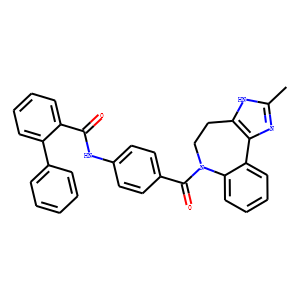| Reference | 1. Ann Pharmacother. 2013 Sep;47(9):1194-200. doi: 10.1177/1060028013503126.
<br>
Conivaptan for treatment of hyponatremia in neurologic and neurosurgical adults.
<br>
Buckley MS(1), Patel SA, Hattrup AE, Kazem NH, Jacobs SC, Culver MA.
<br>
Author information: <br>
(1)Department of Pharmacy, Banner Good Samaritan Medical Center, Phoenix, AZ.
<br>
OBJECTIVE: To review the literature evaluating the clinical safety and efficacy
of conivaptan in the management of hyponatremia in a neurologic and
neuro-surgical adult patient population.<br>
DATA SOURCES: A literature search was conducted using MEDLINE, EMBASE, PubMed,
and the Cochrane Central Register of Controlled Trials (1966-May 2013). Search
limits were English, human, and adult using the terms vasopressin receptor
antagonist, conivaptan, tolvaptan, lixivaptan, neurology, neurological disorder,
neurosurgery, neurointensive care, and neurocritical care.<br>
STUDY SELECTION AND DATA EXTRACTION: All case reports, case series, and clinical
trials investigating the use of conivaptan in neurosurgical patients were
included.<br>
DATA SYNTHESIS: Seven reports were identified using conivaptan as monotherapy or
adjunctive treatment for hyponatremia in a neurosurgical patient population. One
study was a prospective, randomized, controlled trial, while 6 reports were case
reports or case series. The prospective randomized trial found a significant
increase in serum sodium concentration over baseline with a conivaptan 20-mg
intravenous bolus dose followed by a 20-mg/day continuous infusion for 24 hours
compared to /usual care/ at 6 hours (7.0 ± 1.7 vs -0.6 ± 2.1 mEq/L, respectively;
p = 0.008) and 36 hours (8.0 ± 5.6 vs -1.7 ± 2.1 mEq/L, respectively; p = 0.05)
after treatment. One case series found that the mean serum sodium remained
significantly increased from baseline up to 72 hours (5.12 ± 4.0 mEq/L; p <
0.001) after a single conivaptan 20-mg intravenous bolus dose. All reports
demonstrated clinical effectiveness of conivaptan in significantly increasing
serum sodium concentrations following administration compared to baseline.
However, the clinical significance of this finding remains debatable since some
of these patients remained hyponatremic.<br>
CONCLUSIONS: Overall, conivaptan is a promising and well-tolerated agent for the
management of hyponatremia in neurologic and neurosurgical patients. However, its
use should be limited to patients in whom conventional therapies fail or as
adjunctive therapy.
<br>
2. Drugs Today (Barc). 2006 Jun;42(6):379-86.
<br>
Conivaptan: a selective vasopressin antagonist.
<br>
Sulemanjee NZ(1), Schwarz ER.
<br>
Author information: <br>
(1)Division of Cardiology, Department of Internal Medicine, the University of
Texas Medical Branch, Galveston, Texas, USA.
<br>
Complex neurohormonal interactions dictate the body/’s volume status in different
disease states. Besides the known pathologic activation of the
renin-angiotensin-aldosterone axis and the effect of the adrenergic system,
arginine vasopressin (AVP) represents a key element that is responsible for
volume homeostasis. Serum AVP levels have been shown to be chronically elevated
in different pathologic conditions that exhibit an imbalance in volume status,
particularly in congestive heart failure. Evidently, elevated levels of AVP play
an important role in the pathogenesis and progression of these diseases. AVP has
many other receptor-mediated deleterious effects on vascular smooth muscles and
cardiomyocytes. These effects are an integral part of the neurohormonal milieu in
patients with heart failure. This assumption has propelled agents that antagonize
the effects of vasopressin receptors to the forefront of clinical research,
especially in heart failure management. This paper reviews current knowledge on
conivaptan, a novel dual V1a/V2 vasopressin receptor antagonist.
<br>
3. Expert Rev Cardiovasc Ther. 2006 Jan;4(1):17-23.
<br>
Conivaptan: a selective vasopressin antagonist for the treatment of heart
failure.
<br>
Schwarz ER(1), Sanghi P.
<br>
Author information: <br>
(1)Division of Cardiology, Department of Internal Medicine, The University of
Texas Medical Branch School of Medicine, Galveston, TX 77555-0553, USA.
[email protected]
<br>
Heart failure commonly manifests as a syndrome of salt and water retention.
Arginine vasopressin plays an important role in volume homeostasis and may
contribute to this syndrome seen in heart failure patients. Recently, a number of
agents have been developed that antagonize the effects of vasopressin.
Conivaptan, which is a dual antagonist of the V1a and V2 receptor, has shown
promise in animal studies and in small scale human trials as a potential
therapeutic option for the treatment of acute and chronic heart failure. Further
large studies are being conducted, which may confirm the benefits of conivaptan
and other vasopressin antagonists in heart failure patients.
<br>
|

